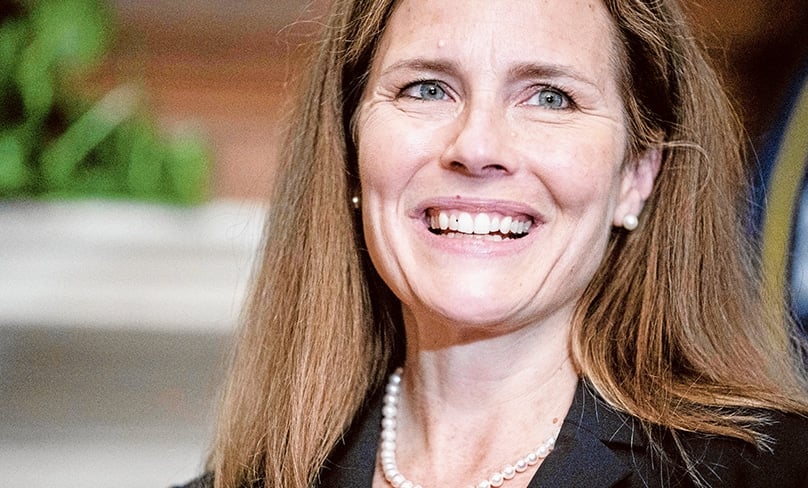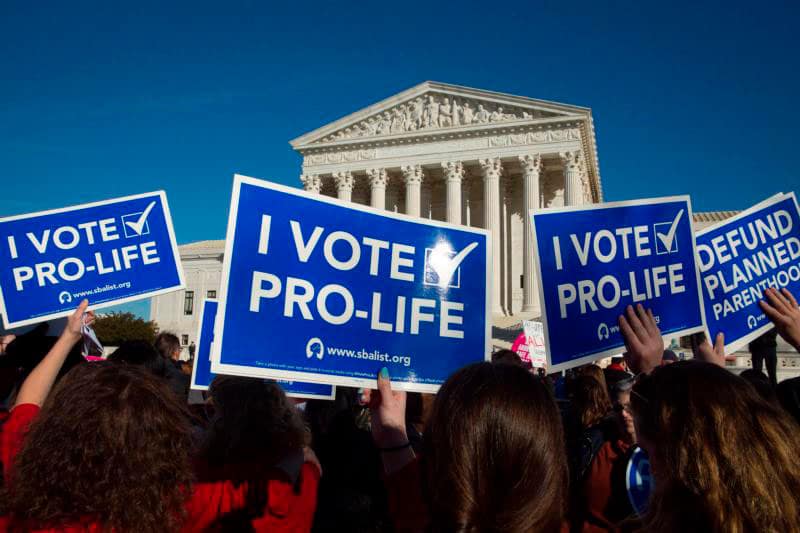
“The dogma lives loudly within you.”
“These now-immortal words were spoken to (or at) Amy Coney Barrett by Senator Diane Feinstein during her 2017 confirmation hearing for a position on the 7th US Circuit Court of Appeals.
Judge Barrett, at the time a Professor of Law at the US University of Notre Dame, had been nominated to become a judge for the Court of Appeal.
Before she could take up the position, though, Barrett had to pass a gruelling Senate confirmation hearing that probed every aspect of her life including – and especially – her Catholic faith.
That “the dogma lived loudly” within Barrett was not so much an observation as it was an accusation.
Judge Barrett passed that confirmation hearing and currently sits on the Court of Appeals.
Last week, she was announced as US President Donald Trump’s nominee to fill the vacancy left on the Supreme Court bench by the death of Justice Ruth Bader Ginsburg.
Before this happens, a similar confirmation process will have to occur.
This process is made all the more controversial by its proximity to the US election, and that Judge Barrett is seen as the ideological opposite of Justice Ginsburg, whom she hopes to replace.
Judge Barrett will have to suffer again the indignity of senators sneering publicly at her private life, including that she is the mother of seven children, including two children she and her husband adopted from Haiti and a son with Down Syndrome, as well as her being a part of a Catholic charismatic community known as People of Praise.
Already, commentators have suggested that Barrett should be rejected because she is a mother of seven, she is a committed Catholic and – most horrifically – she is pro-life.

One particularly vicious commentator even suggested that her two adopted children were ‘purchased’, rather than legally adopted.
In order to take a place on the Supreme Court, Judge Barrett will have to convince senators to look past her religious faith and her family structure, both of which are irrelevant to her capabilities as a judge.
Interestingly, no one has been able to find anything in her judicial record to challenge; it is only her private life that has raised alarm.
At this point, it seems, Judge Barrett will face similar challenges to her predecessor, Justice Ginsburg.
Justice Ginsburg was already a young wife and mother when she began studying law.
At the time, fewer than two per cent of law students were women and Ginsburg and her other female classmates were famously chastised by the Dean of Harvard Law School for ‘taking the place of a man.’
Graduating at the top of her class, Ginsburg still struggled to find a job, because firms refused to hire females. Like Barrett, these barriers to her career had nothing to do with her legal knowledge, but judged her on her private life.
Justice Ginsburg shot to the spotlight for championing gender equality, with cases that included whether male and female caregivers would be treated equally when it came to tax deductions, military benefits, the right to act as executors for estates and more.
She also filed the first federal case that challenged the practice of forced sterilisation.
She was an advocate for those on the margins.
Judge Barrett, in word and deed, is a champion for the marginalised of today: the unborn, those with disabilities and others treated like outcasts.

Photo: CNS/Carlos Barria, Reuters
Ginsburg ultimately concluded her stellar legal career with her appointment as the second female, and first Jewish justice of the Supreme Court.
At her senate confirmation hearing, Justice Ginsburg said she expected to see in her own lifetime, “three, four, perhaps even more women on the high court bench; women not shaped from the same mould but of different complexions.”
If confirmed, Judge Barrett would be another woman, and definitely not shaped in the same mould.
While not the first woman or the first Catholic, Barrett will be the first mother of school-aged children to take the seat.
So, if women can serve at the highest levels without regard to their private lives, why is Ginsburg valourised and Barrett demonised?
Like too many things, it all comes down to sex.
Ginsburg was a champion of abortion rights, same-sex marriage and other “progressive” causes, giving them precedence over the right to religious freedom.
Barrett, a committed Catholic, takes a more conservative view on these matters.
Progressives are terrified that, if appointed to the Supreme Court, Barrett will put at risk some of the so-called rights they have taken for granted.
It’s ironic.
Justice Ginsburg fought her whole career to ensure that women were not discriminated against “on the basis of sex”, so much so that it was the title of the movie based on her life.
After her death, those who presume the role of protecting her legacy seek to do so by discriminating against her would-be predecessor… on the basis of sex.
I would say that those who are persecuting Barrett are doing damage to Ginsburg’s legacy, rather than preserving it.
Related Articles
